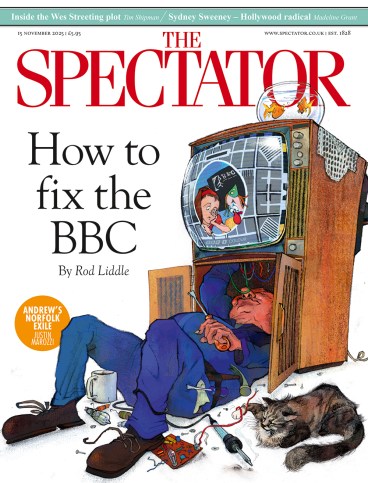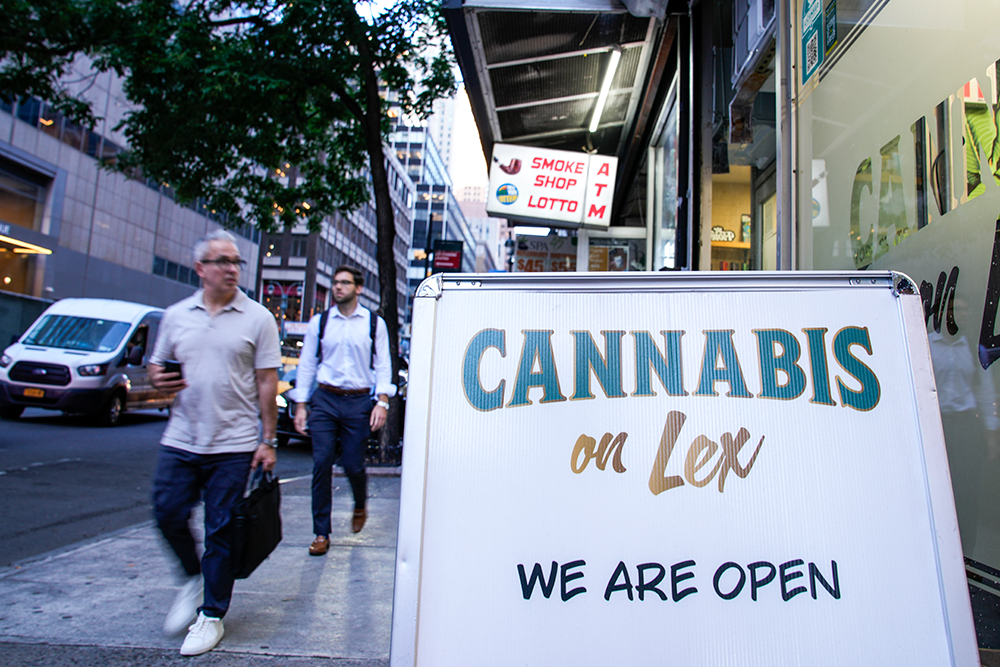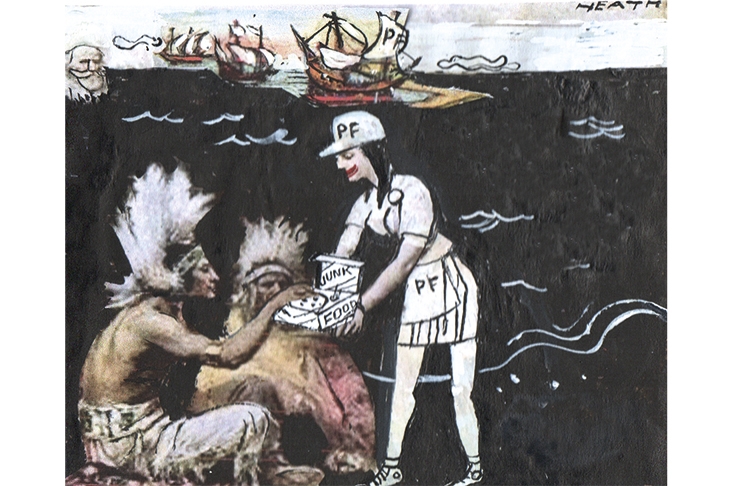
Back to reality
Sir: The harms caused by cannabis are not a result of a failure to police it properly (‘Stench of failure’, 8 November). They are primarily because the distribution of it is controlled by criminals rather than corporations. Criminal gangs maximise their profits by pushing more addictive forms of drugs, and their activity wreaks misery on their families and communities.
Psychosis is only associated with skunk, which is a more addictive form of cannabis, high in THC relative to CBD. Smokers of this are estimated to be 2.6 times more likely to have psychotic-like experiences than non-smokers. Herbal cannabis is not associated with psychosis; in fact, the high levels of CBD in it have some therapeutic and even antipsychotic benefits. Criminalising this less potent form in particular is foolish, even cruel: in prisons, for example, it has led to the spread of less detectable but highly dangerous cannabinoids called spice.
Let’s deal with the world as it is: there will always be demand for recreational drugs because they are pleasurable and sometimes therapeutic. A small minority of people, lamentably, are addicted to them. So better for the supply to be controlled by corporations, heavily taxed and regulated, as they have been for tobacco and alcohol, both of which have greater individual and social harms than most illegal recreational drugs. Consumption of both have fallen markedly in recent decades.
Despite the success of the public policy framework for these legal drugs, we are now – perversely – with tobacco, through the generational smoking ban, moving to a prohibitionist policy. Really, we need the opposite: for most recreational drugs to have similar policy frameworks to those alcohol and tobacco have had for decades.
Ryan Shorthouse
Executive chair, Bright Blue, London SW6
Eye on the chase
Sir: Many readers will have been saddened to read Robin Oakley’s farewell after a remarkable 30 years on The Turf (8 November). Few political editors have also led the field in another discipline in such a distinguished manner – the journalistic equivalent of winning the Derby before taking the Grand National. As we wish him well for the future, I trust The Spectator will keep its eye on the chase. With gambling tax rises set to pull hard at the reins, horse racing needs champions who both understand and support it.
Anthony Simon
London SW6
Harding’s luck
Sir: Matthew Parris’s heartwarming column (‘The engine’s pitch has changed’, 8 November) contains a small error. The bomb under General Harding’s bed didn’t fail to detonate. Far from it. As it ticked, the bomb was removed by the Commander of the Guard, 2nd Lt Michael Buckley, using a shovel, and put in a sandbagged dugout, where it exploded harmlessly a few minutes later. Michael was my brother.
Elisabeth Beeley
Salisbury, Wiltshire
Thanks to Heath
Sir: I was fortunate enough to be on the receiving end of Michael Heath’s generosity in the early 1990s when, as an early victim of the original Child Support Agency, I was at my wits’ end (‘Artist in residence’, 1 November). Michael’s timely cartoon, showing an unhappy father and child as a set of building blocks with the letters CSA on them, caught my eye, and I thought it captured the sentiments of those of us unfortunate enough to be ensnared by that monolithic bureaucracy. I wrote to express my admiration for the cartoon and within a few weeks not only received an acknowledgement from Michael but also the original cartoon, which I’ve kept proudly to this day. Long may his pencils remain sharpened.
Bryan McAlley
Newick, East Sussex
Smartphone occultism
Sir: I was surprised that Damian Thompson’s article on the unholy union of magic and tech (‘Computer wizardry’, 1 November) didn’t mention scrying mirrors. Occultists would peer into dark reflective glass for hours on end to commune with forces and entities beyond the ken of mere mortals. What they received in return was a diabolically distorted version of the answer they sought, sufficiently validating as to encourage credulity. If that doesn’t describe smartphone use, I don’t know what does.
Lee Jenkins
Bolton, Lancashire
Truffle pups
Sir: Having lived in Provence for quite some time, I was assured by my neighbours that training a proper truffle hound for our small oak wood would take years (‘Notes on…’, 8 November). Not so: when our pet labrador had seven puppies, from day one I rubbed her nipples with one of the strongest black truffles available. Within eight weeks we had home-trained truffle hounds that caused complete havoc in the surrounding area, but in exchange for the black diamond we bartered with local restaurants and ate out very well gratuit.
Anthony Bird
Venice
Infiltrated Greens
Sir: As someone with strong views about the environmental hole we have dug for ourselves, I was delighted to see Andrew Gimson’s skewering of Zack Polanski (‘The Z list’, 8 November). The old Green party, although ineffectual, was clear that it did not belong to the left-right continuum and might even have done some good. But in the 2010s it was heavily colonised by the ‘progressive left’ and has now taken to suspending members who don’t toe the line on any part of the omnicause. By treating the environment as just another good cause along with all the others, the Green party has become part of the problem itself.
Martin Parkinson
Bristol
Write to us letters@spectator.co.uk







Comments